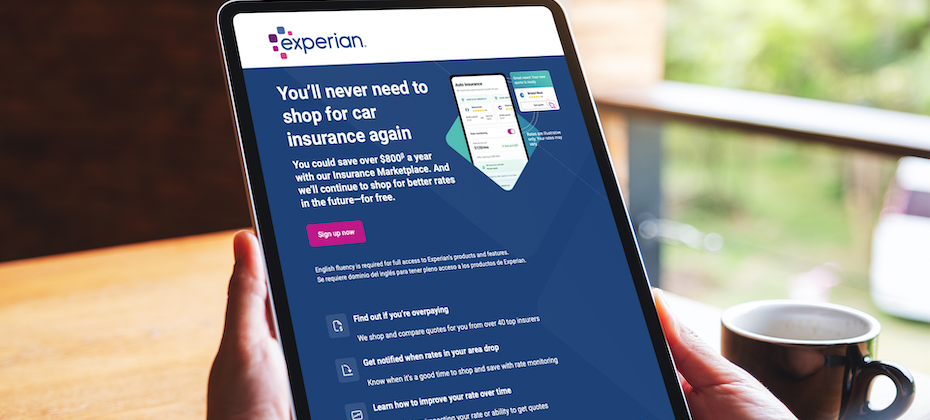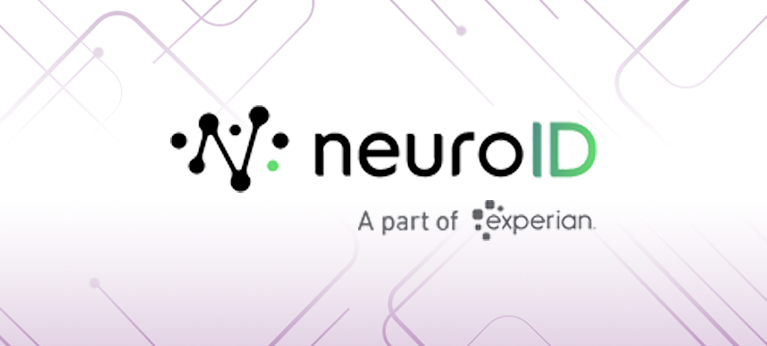News
What’s happening in our industry and what we’re doing

People rely on credit cards, personal loans, mortgages and auto loans, among other financial products to buy homes, fund college educations, weather temporary income disruptions and finance billions of daily transactions for goods and services. Credit is the cornerstone of the pursuit of our financial ambitions. That’s why the credit reporting industry is deeply committed to broadening access to fair and affordable financial resources for all consumers, particularly for individuals and households from underserved communities. The commitment is underscored by the continual effort to evolve the credit reporting system and incorporate new data sets to provide lenders a more comprehensive view of consumers’ ability and capacity to repay outstanding debt. Although progress has been made to extend credit to more prospective borrowers across the risk spectrum, if we want to continue to broaden the scope, we need to encourage the consistent reporting of additional predictive data sources to help lenders assess consumers’ creditworthiness. A proven track record but there’s more work to do Over the past century, the credit reporting industry transitioned from an opaque system founded on relationships to one rooted in data. Lenders lean on past payment history on similar loans (i.e., auto loans, mortgages, credit cards, etc.) as a reliable predictor of a borrower’s future loan payment performance—it’s a way for them to mitigate risk and say “yes” to more borrowers. And it works. The comprehensive reporting of past loan performance, coupled with increasingly sophisticated statistical prediction models, as well as the adoption of risk-based pricing, accelerated the extension of credit to more consumers. Yet, according to research from Experian and Oliver Wyman, millions of Americans lack access to mainstream credit because they are credit invisible, unscorable or have a subprime credit score. It’s particularly challenging for younger individuals, newly arrived immigrants and historically underserved communities, such as racial and ethnic minorities. At times it can be a catch-22; in order to get credit, you have to have credit. More predictive data is key At Experian, we’ve long understood that expanding the universe of creditworthy borrowers requires more data. In addition to some of the more conventional tradelines, such as mortgages, auto loans and credit cards, we have to explore expanded data sources that are predictive of a prospective borrower’s credit risk. For instance, more consumers are using buy now, pay later (BNPL) products, and nearly every consumer makes recurring monthly payments for rent, utilities, cell phones and even video streaming services, yet oftentimes, these data points are not consistently reported to the credit reporting agencies nor considered during lending decisions. Collectively, the industry and regulators, need to do more to encourage the consistent reporting and inclusion of expanded data onto consumers’ credit reports. In fact, based on our research, we’ve found that some of the aforementioned expanded data sources can empower lenders to assess the credit risk of a significantly larger pool of consumers. These expanded data sources have been shown to be highly accurate predictors of future loan payment behavior. And, when expanded data is combined with advanced analytics, up to 96% of the population can be scored, including an estimated 65% of credit invisibles.1 Broadening access to fair and affordable credit for more consumers means leaning into combining conventional tradelines with expanded Fair Credit Report Act-regulated data sources. The more information lenders have available to them about prospective borrowers’ past payment performance the more empowered they are to minimize risk and more confidently extend credit. Pushing for more data is the best path forward.

In an era where financial transactions occur at the click of a button, the significance of accurately verifying and authenticating consumers’ identities cannot be overstated. From online purchases to mobile banking, ensuring secure and reliable digital connections and safeguarding consumers’ information are table stakes for any business operating in the digital ecosystem. Unfortunately, some advocacy groups are calling for stricter regulatory guidelines that may impede business’ ability to effectively and efficiently protect a consumer’s financial information and identity. We’re, of course, referring to the push to classify credit header data— identifying information, such as name, current and former addresses, phone number and Social Security number, found at the top of credit reports—as a consumer report under the Fair Credit Reporting Act (FCRA). Subjecting credit header information to the FCRA will unnecessarily limit its permitted use, and effectively make it more difficult—and potentially impossible—for banks and other businesses to use the information to authenticate and verify consumers’ identities. It’s an unintended consequence that will surely compromise the security of our digital identities. Foundational to fraud prevention Credit header data plays a pivotal role in helping businesses detect suspicious activity and stay ahead of increasingly sophisticated fraud schemes. With credit header information, banks and other financial institutions cross-reference loan applications against transactions from hundreds of thousands of contributors to spot anomalies and thwart fraudsters before they inflict harm. In fact, many of the industry’s most advanced fraud prevention tools and signals rely on credit header data to verify the legitimacy of any given transaction. Keep in mind, the transactions we’re referring to are transactions of consequence. For instance, opening a new bank account, applying for a loan or transferring money. This level of activity carries inherent risk, and without proper vigilance, could result in significant financial or reputational harm to consumers and businesses. But it’s not only lenders that leverage credit header data, the use cases for credit header data are broad. Government agencies and businesses in the public sector, law enforcement, and some pharmacies use the information to issue one-time passcodes for identification purposes, find missing persons, or verify consumers’ identities prior to prescriptions being filled. Credit header data is already regulated Some of the concern surrounding credit header data centers on consumer privacy, and rightfully so. Protecting consumers’ privacy should be central to the use of sensitive information; however, credit header data is already regulated by the Gramm-Leach-Bliley Act. In fact, for more than 25 years, the Gramm-Leach-Bliley Act specifically provides that the permissible use of credit header data includes fraud prevention, while also mandating consumer privacy and data protection. Subjecting credit header data to additional FCRA regulation, which does not clearly allow for fraud prevention, could make it impractical or impossible for many businesses to use it for that purpose. Not only is additional regulation unnecessary, but it potentially creates a contradictory web of regulations that increases the compliance burden and confusion for many businesses. This ultimately thwarts the purpose of GLBA by delaying fraud prevention efforts and potentially raising costs for consumers. Credit header data is far more than information included at the top of consumers’ credit reports, it is a linchpin that powers many of the most advanced fraud prevention and identify verification tools in the market. Before any further regulation is considered, we have to acknowledge the role that credit header data plays in keeping consumers’ information safe and how any changes may impact the safety and soundness of our digital economy.

Experian continues to affirm its leadership in financial technology, earning the 7th spot on the 2024 IDC FinTech Rankings. This is the third consecutive year that the company has ranked among the top 10 providers, reinforcing its position as a key player in the FinTech space. The IDC FinTech Rankings assess the top 100 financial technology providers based on revenues generated in 2023 from financial services and FinTech sectors. In addition to this notable achievement, Experian has been awarded the 2024 IDC Real Results Award for Bank Deposit Transformation. This award highlights Experian's innovation in driving measurable and impactful changes within the financial services industry. The recognition is particularly focused on the company’s success in helping banks transform their deposit processes through advanced fraud prevention technologies. Experian's Ascend Fraud Sandbox: A Game-Changer A key factor behind this award is Experian's Ascend Fraud Sandbox, a groundbreaking tool that offers financial institutions a comprehensive platform for fraud detection and prevention. The Ascend Fraud Sandbox empowers organizations to analyze data, identify new fraud patterns, and quickly build, test, and deploy models. This technology enables banks to enhance their fraud detection capabilities, leading to higher approval rates for online deposit accounts and reduced fraud-related losses. The sandbox operates with over 10 billion identity and fraud events, which include applications, login activities, and transactions. It also continuously incorporates tens of millions of new events each day. This expansive dataset allows banks to stay ahead of increasingly sophisticated fraud attempts, especially those driven by artificial intelligence (AI). Experian's success in Bank Deposit Transformation demonstrates the company’s ability to help financial institutions improve their processes while simultaneously enhancing fraud protection. By providing advanced fraud-prevention and identity-protection technologies, Experian enables its customers to optimize their operations, reduce risks, and achieve better financial outcomes. Recognition of Experian's Innovation This dual recognition—ranking 7th in the IDC FinTech Rankings and winning the Real Results Award—further solidifies Experian’s standing as a leader in technology. These accolades underscore its capacity to offer data, technology, and scalable solutions that allow financial institutions to make informed business decisions at the necessary speed to remain competitive in an evolving market. Now in its 21st year, the IDC FinTech Rankings evaluate technology providers based on the revenue they generate from financial institutions, including banks, insurers, and capital markets firms. With both the FinTech Rankings and the Real Results Award in hand, Experian continues to deliver innovative solutions that help financial institutions navigate the complexities of modern finance with confidence.

More than two years ago, Experian expanded its consumer offerings to provide a free auto insurance comparison shopping service. As part of our mission of Financial Power to All™, Experian Consumer Services is continuously working to develop new products, services and features that help consumers reach their financial goals. Providing a convenient way for consumers to potentially find a better auto insurance rate on their current policy fit this bill. We’ve enhanced the service now offering a free Ongoing Rate Monitoring feature so Experian members never have to shop for auto insurance again. After enrolling in a free or paid Experian membership, the Experian Insurance Marketplace delivers at no cost, real-time, tailored rates from more than 40 top insurance providers. The Ongoing Rate Monitoring feature will continuously monitor rates and alert members if there is a better deal available on an ongoing basis. To date, Experian has saved members more than $800[i] on their current insurance policy. The marketplace became available at a critical time when rising inflation and interest rates were significantly impacting consumers’ finances – and it’s still the case today. One of the common expenses that has reportedly risen over the past 1-2 years the most is auto insurance by approximately 20 percent. Thus, it’s no surprise a recent Experian consumer survey shows 3 out of 4 of respondents are worried rates will increase in the next 12 months. We’re proud to be able to address consumer needs and deliver free resources like our marketplace that financially empowers our members. Consumers can also shop at the marketplace for home and renter insurance. To access the marketplace, click here. [i] Results will vary and some may not see savings. Average savings of $828 per year for customers who switched and saved with Experian from Jan. 1, 2022 to Mar. 31, 2024. Savings based on customers’ self-reported prior premium. Experian offers insurance from a network of top-rated insurance companies through its licensed subsidiary, Gabi Personal Insurance Agency, Inc.

Experian North America has once again proven its commitment to creating an exceptional workplace, earning a coveted spot on Fortune’s 2024 “Best Workplaces in Technology” list. This prestigious recognition showcases Experian’s dedication to cultivating a vibrant, innovative and inclusive culture where employees thrive. By prioritizing personal growth, diversity and overall well-being, Experian continues to stand out as a leader in the tech industry, ensuring its workforce remains at the heart of its success. A Testament to Experian’s Workplace Culture The Fortune Best Workplaces in Technology™ list, developed in partnership with Great Place to Work®, was based on surveys from more than 870,000 employees across various industries. Feedback captured factors like trust, respect, fairness and credibility, showcasing Experian’s efforts to build a culture where employees feel empowered and engaged. Innovation and Inclusivity Experian’s inclusion in the Large Workplace category reflects its commitment to fostering a collaborative environment. The company supports diversity through partnerships with AfroTech, Grace Hopper, Lesbians Who Tech and Out In Tech, further demonstrating its dedication to inclusivity. A Year of Notable Achievements In addition to the Fortune recognition, Experian earned a silver medal for innovation from Datos Insights and ranked 7th on the 2024 IDC FinTech Rankings, solidifying its leadership in data and technology. With more than 22,500 employees globally, Experian remains dedicated to innovation, employee development and helping businesses and consumers unlock opportunities.

Amid the rise in usage of generative AI tools, companies across industries are looking for fraud detection strategies that enable them to combat sophisticated fraud schemes now and in the future. At Experian, we’re committed to ensuring our clients can make the most informed, data-driven decisions to protect the customers they serve while mitigating risk. To support this, today we’re excited to announce our acquisition of NeuroID – an industry leader in behavioral analytics. NeuroID combines the power of behavioral analytics with advanced device and network intelligence to create the first line of defense against malicious bots, bad actors, and fraud rings. This can help clients identify everything from identity theft to account takeover fraud from the very first interaction. NeuroID’s modern and frictionless capabilities amplify Experian’s fraud risk suite by providing a new layer of insight into digital behavioral signals and analytics observed for both new and returning users throughout the customer lifecycle. Together with NeuroID, we’re excited to build new blended offerings that detect risk but also empower businesses to confidently navigate the online landscape and trust in their transactions. Experian has a long legacy of providing award-winning fraud and identity solutions to protect companies and their customers. Last year alone, our identity verification and fraud prevention solutions helped clients avoid an estimated $15 billion in fraud losses globally. Adding NeuroID to the Experian family is another step in our commitment to continuous innovation in fighting fraud and helping clients and consumers keep pace with the evolving identity landscape. NeuroID’s behavioral analytics solutions are available now through CrossCore® on the Experian Ascend Technology Platform™ as a key fraud-detection capability. With NeuroID seamlessly integrated into Experian, clients can use one service provider to proactively monitor and analyze a user’s real-time digital behavior. To learn more, click here.

We are thrilled to announce that Experian has been named to TIME Magazine’s inaugural "World’s Most Sustainable Companies 2024" list, a testament to our ongoing commitment to environmental stewardship and sustainability leadership. This award is granted on a comprehensive research study conducted by Statista to identify the most sustainable companies across the globe, recognizing companies that are committed to preserving the planet and ensuring future generations inherit a world rich in natural beauty and resources. Experian achieved significant milestones in our sustainability journey in just the past year alone: Our renewable energy usage increased from 62% to an impressive 75%, marking a substantial step towards our goal of maximizing sustainable energy sources. We reduced our overall energy consumption by 19%, contributing to a remarkable 75% reduction, putting us well ahead of schedule in achieving our ambitious goal of a 50% reduction in direct emissions by 2030. As our business has grown, Experian has managed to decrease the carbon intensity of our direct emissions by an impressive 35%. This achievement underscores our dedication to operational efficiency and sustainable practices across our global operations. Looking beyond our direct impact, Experian has committed to working with suppliers that also adopt science-based targets by 2029, demonstrating our influence in driving sustainability throughout our supply chain. At Experian, sustainability is not just a corporate responsibility but a core part of our business strategy. We are dedicated to advancing environmental sustainability, driving positive change in our industry, and contributing to a healthier planet for future generations. As we continue on our journey to Net Zero, we remain committed to setting new benchmarks and leading by example in corporate sustainability. For more information on our sustainability initiatives and progress, click here.

Making a real difference in the world starts with embracing Diversity, Equity, and Inclusion (DEI) and accelerating social impact. It's not just the right thing to do, but it's also key to our mission of creating a better tomorrow, together. DEI isn't just a buzzword for us; it's at the heart of everything we do. Whether it's in our sustainability strategy or our day-to-day operations, we're committed to driving positive social impact and closing the financial wealth gap in underserved communities. It starts with our people. We’re proud to share their dedication and work in this year’s Experian Power of YOU Report 2024: Driving social impact and diversity, equity and inclusion in English, Portuguese and Spanish. Within these pages, you’ll see how we foster belonging with our teammates, and champion DEI beyond the walls of Experian. From developing products like Experian Smart Money to expanding Experian Boost in the United Kingdom, and launching Advance XScore in Peru, we're dedicated to making a difference in the world around us. To that end, you’ll see we’ve also included, for the first time, our new Positive Social Impact Framework, which will reinforce and help our clients, consumers and employees further understand how we are making a difference in our communities. At Experian, we strive to build a brighter, more inclusive future – for our employees, our clients, and our communities. Together, we can make a real difference.

The challenge for financial institutions today is to understand the individuals who are applying for credit and to provide everyone with equitable opportunity to gain access to credit, provided they are an acceptable risk. In my current role as CEO of Experian Software Solutions, I am often reminded of my own journey as an immigrant to America who had to navigate the tests and complexities of establishing my financial identity and eligibility. I understand firsthand how inefficiencies caused in part by fragmented software systems have led to inflated costs, extended timelines, and elevated risks for financial institutions around the globe. Not to mention the profound impact this approach can have on consumers. At Experian, we recognize the need for change, which is why we developed Experian Ascend Platform™— an innovative solution designed to integrate critical functionalities seamlessly. Already, more than 1,500 clients globally are leveraging the platform, processing millions of transactions daily. Today, we’re unveiling new enhancements to the platform that bring together software tools for analytics, credit decisioning and fraud into a single interface — simplifying the deployment of analytical models and enabling businesses to optimize their practices more frequently, achieving greater efficacy with lower investment of time and money. Why does this matter? Well, consider the challenges faced by businesses, especially in the financial sector, when it comes to integrating various software solutions. “Complicated spaghetti” is what executives from some of the largest global banks have called it in conversations with me. Historically, achieving a synchronized experience across different tools and applications has been elusive to the industry. This fragmented approach not only stretches timelines unnecessarily but also raises security concerns and increases operational challenges and costs. Our enhanced platform addresses these pain points head-on. It dramatically reduces time to value while eliminating compliance risks and offers streamlined access to Experian's suite of integrated solutions and tools through a single sign-on and user-friendly, harmonized user interface. Moreover, it leverages generative AI to facilitate seamless automation, modernization, and efficiency across organizations of all sizes and experience levels without compromising human checks and controls. Our platform brings together worldclass Experian data, partner data and our clients' data with the software in one environment. There is no other platform on the market that offers the level of sophisticated integrations we do or that can "turn on" new solutions as quickly. To put it simply, it's a revolution for this industry. By combining analytics, decision-making, and fraud detection into a single platform, we're simplifying operations, enhancing security, and accelerating time to value for financial institutions worldwide. Let me give you an example. Lendr, a specialized fintech offering financing solutions for small businesses, has experienced firsthand the platform's transformative impact on agility, competitiveness, and informed decision-making. In fact, over the last year, the platform has already helped Lendr double their business. Our journey to developing the platform wasn't easy. It has required years of strategic collaboration with many of our most sophisticated clients, significant investments in technology, and a relentless pursuit of innovation. But the result is a platform that is revolutionizing the financial services industry and paving the way for a more inclusive, secure, and seamless financial future for all. As we continue this journey of transformation, I'm excited about the possibilities that lie ahead. With our integrated platform, we’re not just transforming the industry—we're empowering individuals and institutions to thrive.